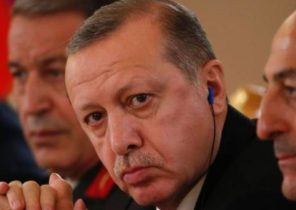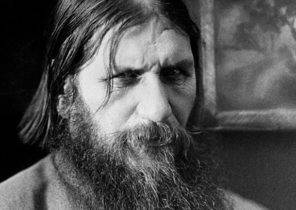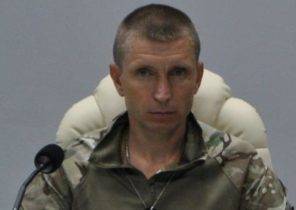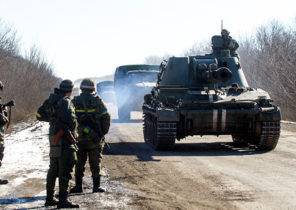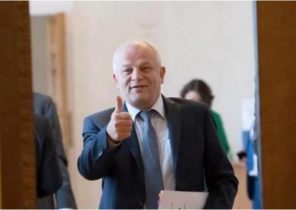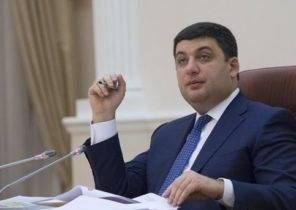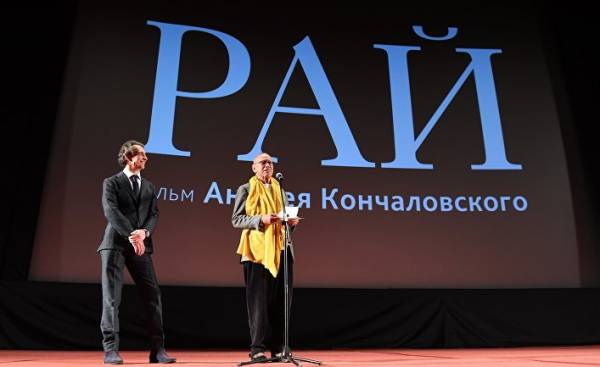
Heroes of Russian playwright Anton Chekhov is often melancholic, which is sad and very sensitive are in the present tense. Chekhov (1860-1904) displays the last convulsions of a tired underclass aristocracy with excessive naivety, alienation from the world and depression. In the film by Andrei Konchalovsky’s “Paradise” Dresden theater actor Christian Klaus played the role of a German aristocrat Helmut. He studies Russian literature and plans to write a thesis on Chekhov. Literature, he says, his escape from reality.
But the path goes in a completely different direction. In the film, Konchalovsky, which is set in 1942 in French Fren, Hellmuth joins the ranks of the SS. He feels a surge of happiness when entering the Nazi party and becomes a strong performer. Remembering later that time, he said: “We have built a brand new world — Paradise on earth”. However, this Paradise is unthinkable without Ada, as cynical says the commander of the concentration camps Krause (Peter Kurtz). “And this hell I’ve created”.
Another film about the Nazi time about the concentration camp, collaboration and resistance in France, the psychopathy of the killers and the agony of the victims. Konchalovsky (b. 1937) varies the theme, setting her historical or psychological a new direction. The strength of the film is created from the skillful chamber drama, persuasive language frames, surreal elements and great acting.
The Director who shot the film in three languages (German, French and Russian) in black and white, with the simultaneous involvement of five cameras in 4:3 format, locates in the center of the action three people. Their life lines cross. Helmut is filled with fantasies about Superman and yet broken at the Chekhov SS. Philip Ducane plays Jules, a French collaborator, producing a pleasant impression, he represents the banality of evil. Olga (Yuliya Vysotskaya) — glamorous Russian aristocrat, working as an editor of the fashion Department at Vogue. She is accused of harboring two Jewish children in his apartment. Jules, who are questioning her, it seems, here-here will fall victim to animalistic power of a woman. She makes him an offer he won’t refuse, but the plan collapses. As it turns out, Helmut is familiar with Olga. One day he fell in love with it in Italy and now again meets her in a concentration camp.
The three main characters constantly appear as the protagonists of the documentary — whether in the interrogation room or in the confessional. Only gradually the viewer realizes that he is shown. Frames moving rapidly and sometimes fade, like they do during the Second world war. The characters tell their stories, which camera Alexander Simonov transformirovalsya in movable shaped frames. Visit of Helmut Heinrich Himmler (Viktor Sukhorukov) to the light-filled office SS a bust of Hitler exposes the rotten beauty.
The Director, who wrote the script along with Elena Kiseleva, sees his film as a reflection on human flaws. The same degree of radicalization and hatred, as in the Nazi period, today again significantly felt: “It threatens the safety and lives of countless people around the world.”
Great ensemble Konchalovsky shows how decent a family man as Jules or sensitive aesthete as Helmut conditions make the perfect accomplices of death. Last but not least, so on the film dominates the gloomy mood. Yuliya Vysotskaya in the way Olga is guided by the survival instinct. Whether in Italy, when she caught the Russian Prince, spoke with Jules about his life or in a concentration camp fled from death but this woman always makes the highest bid to win. Olga brings light into the darkness of the film, which ends with a hopeful message.

